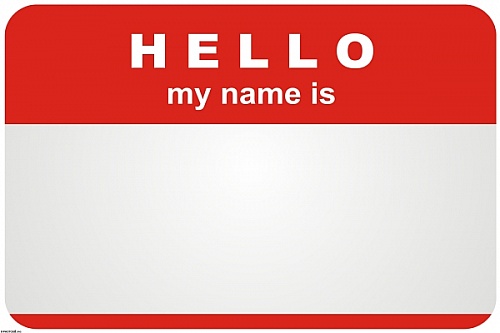By Jordann Sadler ’18, Contributor
Thank goodness my dad didn’t name me. He was going to name me Mary, or Ann, or—I forget the name. But nevertheless, those names are not for me. Instead, my mother named me. She named me Jordann. Yes, Jordann with two N’s. One day I asked my mother, “Why did you name me Jordann?” (This is a question that every child asks their parent or eventually they’ll overhear it in a conversation) She replied, “So no one can judge who you are by just your name. It’s ambiguous.” I thought about her answer for just a second, nodded my head, and dismissed the subject from my mind. Today, I’ve retraced my memories and thought deeply about my mother’s reply. “Judge me by my name…well, of course people are going to judge me by my name,” I thought, “People judge me by my appearance too.” We are wired to. But, why?
Let’s take three names: Becky, Robert, and Laquisha. Okay, now Becky, Robert and Laquisha are at their workplaces. How do they act? What do they look like?
For five years, Becky has been wearing spiky, black hair, gray and black nail polish, and a small, skull necklace. Her employer describes her as an okay worker, an average employee. She graduated from her small community college some years ago. And now, she lives a simple life.
Unfortunately, Robert dropped out of high school, but managed to find a local job that would allow him to work both day and night shifts. His employer describes him as a slacker—Robert can be fired if he doesn’t improve. And now, he struggles as he searches for another job.
Just another day at work and Laquisha smiles as she walks into the room where her patient waits. Her doctorate degree is framed right above the desk where she stores the floss, the fluoride, and the dreadful local anesthesia. And today, she’s going to read that book she’s been dying to get her hands on.
Do you sense the problem? Many may have had a hard time reading those three descriptions. What has our culture indirectly imprinted in our mind: Becky is a Caucasian girl who says, “Like,” “I can’t even,” or “OMG!”, Robert is your all-American male, who is a successful business man, living the “American Dream”, and Laquisha is the African-American…no, the “ghetto” girl from the “hood” who’s trying to raise a child by herself. These were the pictures that automatically popped up in our minds—or at least that’s what I was programmed to imagine. Writing those descriptions, typing those short paragraphs in Microsoft Word made me pause and reteach my brain the ways of my culture. Someone can tell your whole life story, false or true, just by reading your name, only fueling stereotypes. Many of us are stunned by this “intuition” that we have, especially employers. (I use the analogy of an interview because that is where most complications occur.) My mother named me Jordann because if I was Mary or Ann I would have unspoken privileges, before anyone saw my appearance. My mother named me Jordann because if I was Shaniqua my application would be thrown to the bottom of the pile, before anyone saw my résumé. My mother named me Jordann because if I’m going be rejected from a job, it’s going to be because I didn’t prepare or I was lazy or I did not have a good work ethic—not because my name sounded “ghetto”.
But, why? Why couldn’t I be named an ordinary, simple, short name such as Ann? Why couldn’t I be named after an alcoholic drink such as Tequila? Many parents name their child something that is meaningful to them, or something unique and beautiful to them. Yet we let judgement cloud our uniqueness. Yet we, ourselves, judge uniqueness. We see a name and associate that with a face and a color. We see a face and associate that with a name. But instead we should see a face and see a name, then wait for the character to show itself.
Mary, Ann, Becky, Robert: those names are not for me. Tequila, Shaniqua, Laquisha…those are names for me, a black girl, right?




